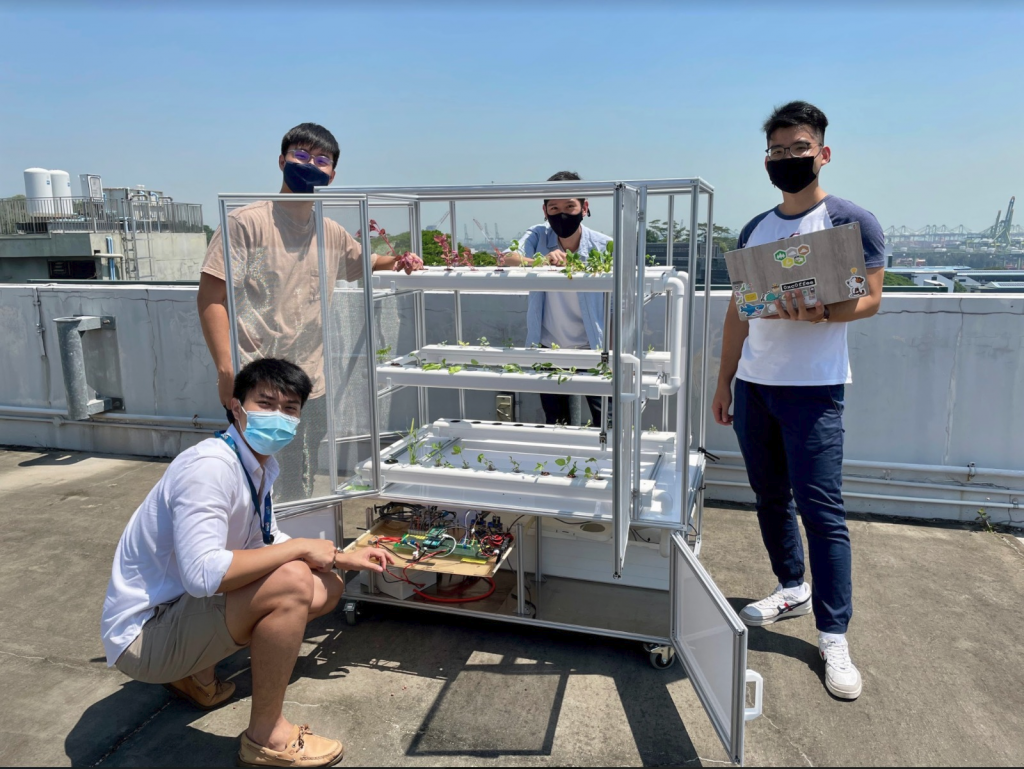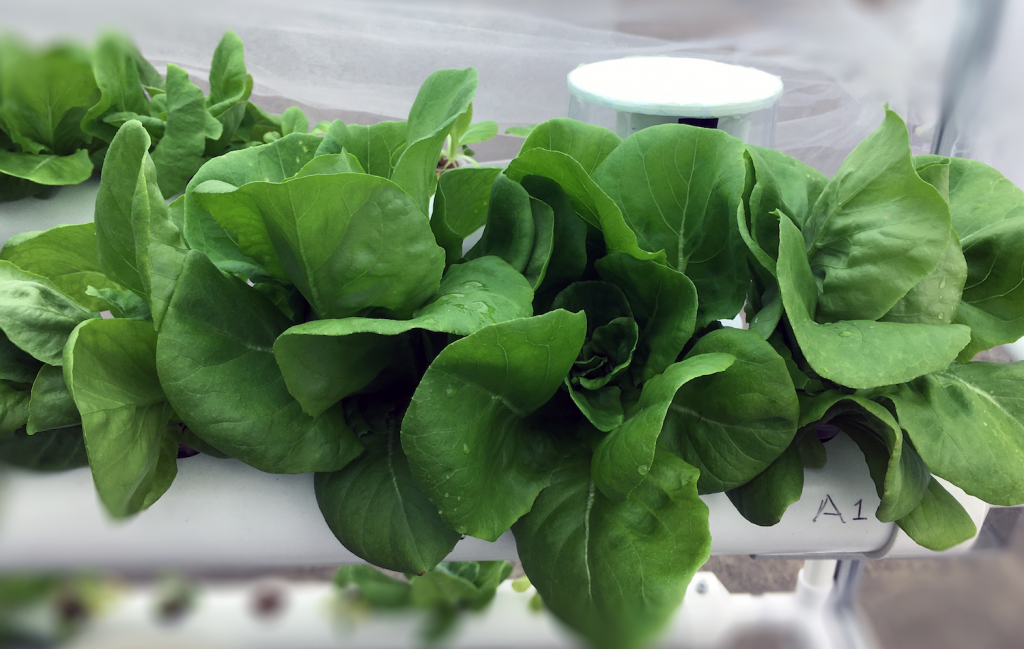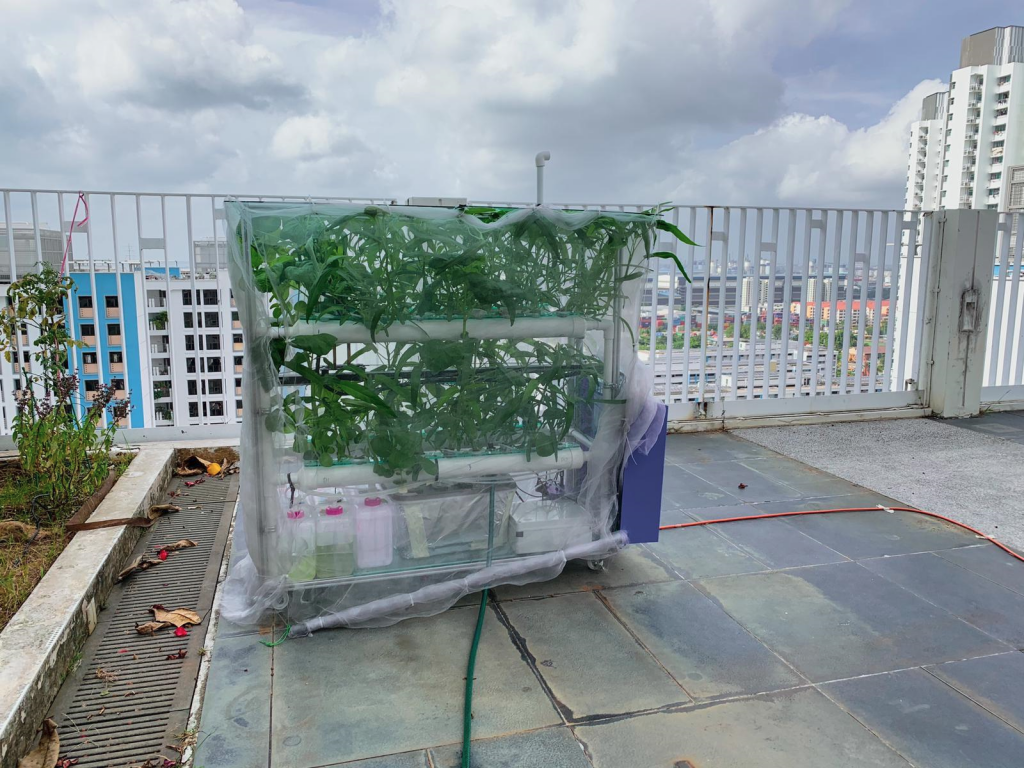NeoFarm: Smart Urban Farming

Project Motivation
In a dense and urbanised country like Singapore, a lack of time, knowledge, and access to resources such as spaces with appropriate sunlight, are common barriers for residents in the community to participate in urban farming. This project designed a way to attract the community to participate in urban farming, by increasing accessibility and simplicity. Furthermore, the solution aimed to introduce automation and monitoring technologies to community farming, which largely relies on manual tools, making it a novel solution for the urban farming community.
Design
NeoFarm is a hydroponics system that blends technology with farming to simplify the urban farming experience. The success of NeoFarm can be attributed to the implementation of a two stage process: the home stage followed by the community stage.
In the home stage, users assemble their germination kits that include all the necessary resources for successful germination: seeds, net pots, nutrient solution, etc. All they have to do next is to place it by the window, where it receives sunlight to grow.
In the community stage, an IoT hydroponics farming system is used to eliminate routine tasks like fertilizing and watering of the plants through automated dosing and monitoring of key plant growth parameters such as electro-conductivity (EC), pH, water level, and lux level. In addition, the enclosed hydroponics set-up can reduce pest infestation that regularly plague community gardens. In the prototype, plant growth parameters are continuously transmitted to an online cloud server and processed into a simplified graphical interface that users can access from their mobile devices. Furthermore, pictures of their plants are captured daily by cameras in the system, which are also displayed on their mobile devices for users to visually track their plants’ growth. This ensures that users who are not able to access the rooftop garden easily are still able to watch their plants grow.

Two functional prototypes were made and tested with the residents at Teban Vista. With their feedback, we were able to simplify the community farming process and make it more attractive to the wider community who had not previously tried urban farming or faced failures in the past with soil farming. Overall, we managed to keep the commitment duration less than one hour a week, catering to residents with busy schedules. Their strong involvement provided us with great feedback, which helped us perform design iterations during the length of this project. The residents who took part in our pilot tests also successfully underwent two growing cycles (germinate, transplant, and harvest) with both of our prototypes. The project has also inspired some of the residents to start their own mini farming projects, showing that the project has also managed to spark users’ interest in urban farming.


Project Team
Students:
- Benjamin Chong Zhi Yi (Computer Engineering, Class of 2021)
- Nicol Lam Xian Li (Mechanical Engineering, Class of 2021)
- Nixon Osckar (Mechanical Engineering, Class of 2021)
- Zeno Maverick Low Wei (Electrical Engineering, Class of 2022)
Supervisors:
- Yen Shih Cheng (sc.yen@nus.edu.sg)
- Peh Yen Xian Wendy

